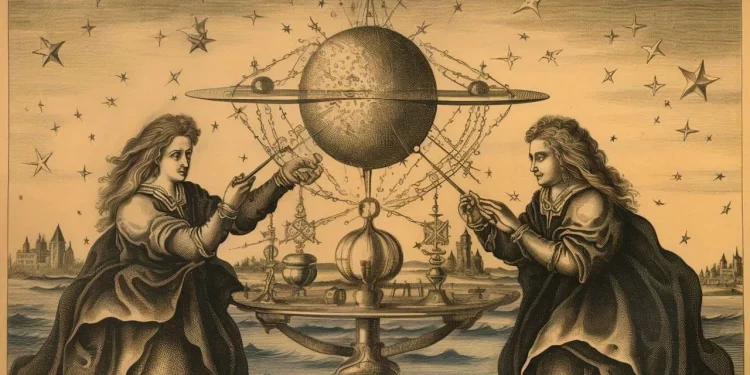Astrology, the study of the movements and relative positions of celestial bodies interpreted as having an influence on human affairs and the natural world, has a rich and fascinating history spanning millennia. Rooted in ancient civilizations, astrology has evolved over time, adapting to cultural shifts and technological advancements. From its origins in early astronomy to modern interpretations, astrology continues to captivate the human imagination and influence various aspects of society.
Ancient Beginnings: Mesopotamia and Egypt
The roots of astrology can be traced back to ancient Mesopotamia and Egypt, where early civilizations observed the movements of celestial bodies with great reverence. In Mesopotamia, the Babylonians developed the first astrological system around 2,400 BCE, focusing on the movements of the Sun, Moon, and five visible planets. They believed that these celestial bodies held significant influence over human destinies and the affairs of the world.
Similarly, in ancient Egypt, the alignment of stars and planets played a crucial role in religious practices and the governance of the kingdom. Egyptian priests were tasked with interpreting celestial omens to guide decision-making and predict future events. The famous Egyptian zodiac, with its twelve signs representing different periods of the year, reflects the enduring legacy of astrology in Egyptian culture.
Classical Era: Greece and Rome
During the classical era, astrology flourished in ancient Greece and Rome, merging with philosophical and mystical traditions. Greek philosophers such as Plato and Aristotle explored the concept of celestial influence on earthly affairs, laying the groundwork for later astrological theories. Meanwhile, in Rome, astrology gained widespread popularity among emperors, senators, and the general populace.
One of the most influential figures in the history of astrology was Claudius Ptolemy, a Greek-Egyptian astronomer, and mathematician who lived in the 2nd century CE. Ptolemy’s work, “Tetrabiblos,” served as a comprehensive guide to astrological principles and techniques, shaping astrological practices in the Western world for centuries to come.
Medieval Europe: Astrology and Christianity
During the Middle Ages, astrology faced both acceptance and opposition within Christian Europe. While some church authorities denounced astrology as heretical and forbidden, many medieval scholars, including figures like Albertus Magnus and Thomas Aquinas, incorporated astrological concepts into their theological frameworks. Astrology was often practiced alongside other forms of divination, such as alchemy and numerology, within the context of medieval mysticism.
The Renaissance and the Age of Enlightenment
The Renaissance witnessed a revival of interest in astrology, as scholars and intellectuals revisited ancient texts and philosophical ideas. Figures like Johannes Kepler, a German astronomer, and mathematician, explored the mathematical basis of astrological theories, seeking to reconcile astrology with emerging scientific principles. However, the rise of empirical observation and rational inquiry during the Age of Enlightenment led to skepticism towards astrology among educated elites.
Modern Astrology: Psychology and Popular Culture
In the 20th and 21st centuries, astrology experienced a resurgence in popularity, fueled by advancements in psychology, technology, and popular culture. Psychologists such as Carl Jung and Sigmund Freud recognized the symbolic significance of astrological archetypes, incorporating astrological concepts into their theories of the unconscious mind.
Moreover, the proliferation of mass media, the internet, and social media platforms has facilitated the widespread dissemination of astrological knowledge and personalized horoscopes. Today, millions of people around the world consult astrologers, read horoscopes, and explore their birth charts as a means of gaining insight into their personalities, relationships, and life paths.
Conclusion:
From its ancient origins in Mesopotamia and Egypt to its modern interpretations in the digital age, astrology has endured as a powerful cultural phenomenon. Despite facing skepticism and criticism from skeptics and scientists, astrology continues to fascinate and inspire individuals seeking guidance, meaning, and connection to the cosmos. Whether viewed as a scientific discipline, a form of psychological insight, or simply as entertainment, astrology remains an integral part of human culture, reflecting our enduring fascination with the mysteries of the universe. For more information you can click here www.juperko.com.










